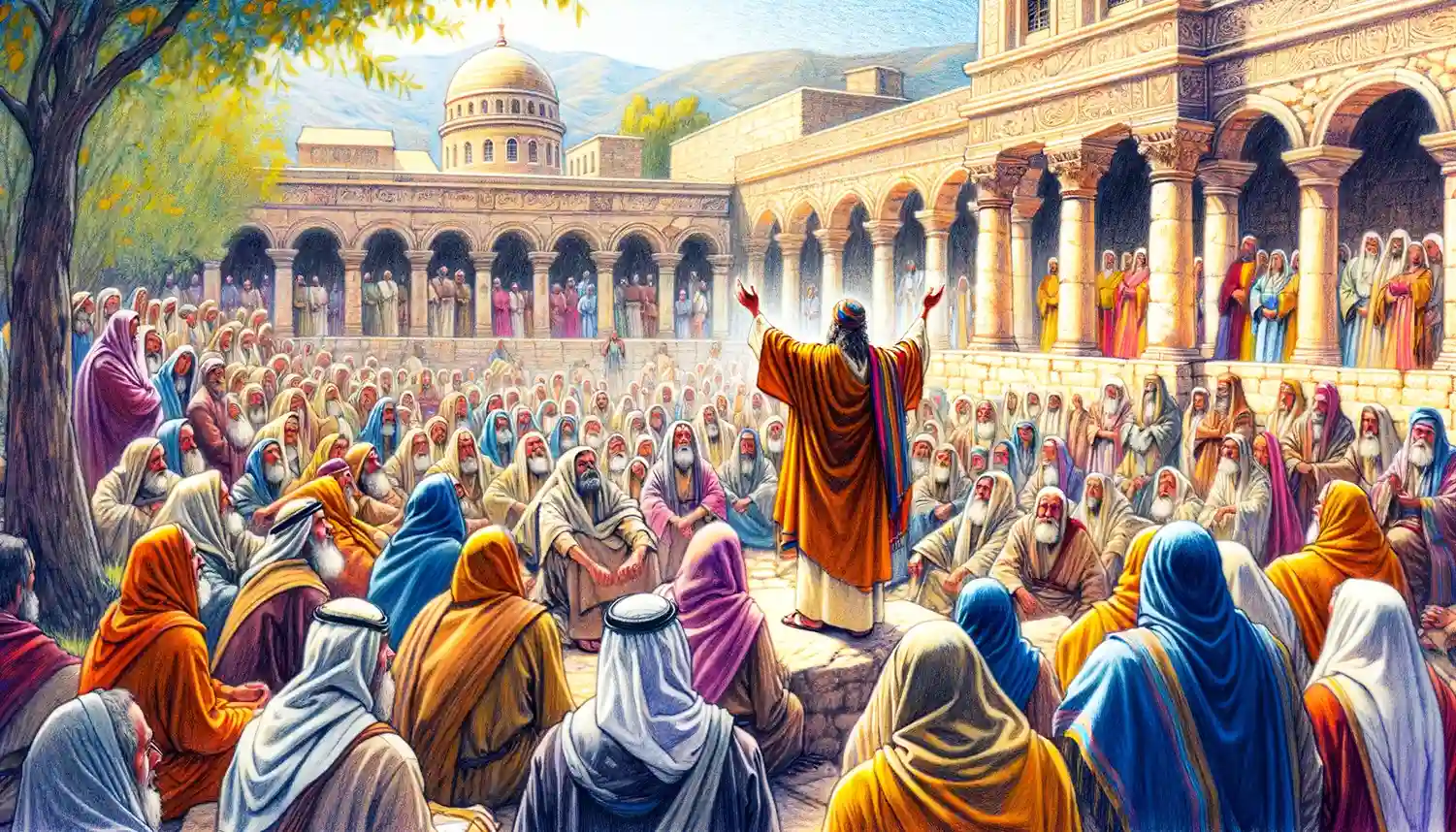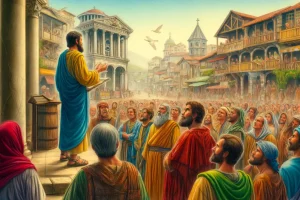
The Book of Malachi
The Book of Malachi is the last book of the Twelve Minor Prophets in the Old Testament. Here are some quick facts about this prophetic text:
- Authorship: The book is attributed to the prophet Malachi, whose name means “My Messenger” in Hebrew. Little is known about Malachi as a historical figure.
- Historical Context: Malachi likely prophesied around 450-400 BCE, during the post-exilic period in Judah, a time marked by spiritual and social disillusionment among the people.
- Themes:
- Spiritual Apathy and Corruption: Malachi addresses issues of corrupt priesthood, faithless marriages, and general neglect of proper worship practices.
- Divine Judgment and Covenant Faithfulness: The book emphasizes God’s judgment against injustice and infidelity but also reaffirms His unchanging love and covenant with Israel.
- Call to Repentance: Malachi calls for sincere repentance and renewal of faith practices.
- Structure: The book contains four chapters (in the Christian Bible; it is divided into three in the Hebrew Bible). It is structured mainly around a series of disputations or dialogues between God and His people.
- Key Verses:
- Malachi 3:1: “Behold, I send my messenger, and he will prepare the way before me. And the Lord whom you seek will suddenly come to his temple; and the messenger of the covenant in whom you delight, behold, he is coming, says the LORD of hosts.”
- Malachi 3:10: “Bring the full tithe into the storehouse, that there may be food in my house. And thereby put me to the test, says the LORD of hosts, if I will not open the windows of heaven for you and pour down for you a blessing until there is no more need.”
- Literary Features: Malachi uses a distinctive rhetorical style, involving a series of questions and answers that challenge the people’s complacency and illustrate their disconnect from God’s expectations.
- Theological Significance: Malachi underscores the importance of genuine worship, the dangers of spiritual complacency, and the hope of future restoration under a new covenant.
The Book of Malachi, the last of the Twelve Minor Prophets in the Hebrew Bible, offers a profound critique of the religious and moral decay observed in post-exilic Judah. It is structured around a series of dialogues between God and His people, characterized by rhetorical questions and challenges that underscore the community’s shortcomings and call for renewal. Here is a detailed analysis of the Book of Malachi, exploring its context, content, themes, and significance.
1. Historical Context
Malachi was likely written around 450-400 BCE, during a period of disillusionment that followed the initial enthusiasm of the return from Babylonian exile. The community faced economic hardship, social injustice, and religious apathy, particularly evident in the corrupt practices of priests and the people’s neglect of proper worship and tithes.
2. Structure
The Book of Malachi is organized into four chapters (divided into three in the Hebrew Bible), using a distinctive disputation style:
- First Disputation (Malachi 1:2-5): Addresses doubts about God’s love, citing God’s preference for Jacob over Esau and the destruction of Edom as proof of His enduring love for Israel.
- Second Disputation (Malachi 1:6-2:9): Criticizes the priests for offering blemished sacrifices and thus failing in their duty to lead the worship faithfully.
- Third Disputation (Malachi 2:10-16): Condemns the faithlessness in marriage, both towards Jewish wives and through marriages to foreign women, which violated the covenant.
- Fourth Disputation (Malachi 2:17-3:5): Challenges the people’s skepticism about God’s justice, promising the coming of a messenger to purify and refine.
- Fifth Disputation (Malachi 3:6-12): Calls out the people for withholding tithes and offerings, promising blessings for compliance.
- Sixth Disputation (Malachi 3:13-4:3 [3:13-21 Hebrew Bible]): Contrasts the fate of the wicked and the righteous, promising that the faithful will be spared in the day of judgment.
3. Major Themes
- Divine Justice and Human Accountability: Malachi underscores God’s justice and emphasizes that human actions, especially those of the leaders and priests, are accountable before divine standards.
- Covenant Faithfulness: The prophet calls for a return to covenant fidelity in worship, marriage, and social dealings, highlighting the interconnections between religious practice and everyday ethical behavior.
- The Messenger of the Covenant: Malachi prophesies the coming of a messenger, identified in Christian theology as John the Baptist, who will prepare the way for a more profound divine visitation.
4. Literary Features
Malachi employs a judicial or forensic rhetorical style, involving questions posed by an imagined skeptical audience and responses that reveal their errors and correct their understanding. This method effectively engages the audience in self-reflection and emphasizes the points being made.
5. Theological Significance
Malachi’s prophecies reaffirm the unchanging nature of God and His expectations for His people. The promise of a coming messenger who will prepare the way for the Lord introduces a forward-looking eschatological element that bridges the Old and New Testaments.
6. Contemporary Relevance
Today, Malachi’s call to integrity in religious practice and social relations continues to resonate, challenging modern believers to reflect on their commitment to justice, generosity, and fidelity within their communities.
In summary, the Book of Malachi confronts the complacency and corruption of his time with incisive clarity, urging a return to genuine piety and justice. It leaves a legacy of hope through renewal and the anticipation of a new covenant, marking a pivotal transition to the messianic expectations that follow in the New Testament.
Tag:accountability, blessings, corrupt priesthood, covenant faithfulness, divine judgment, divine justice, divine love, eschatology, ethical living, John the Baptist, Malachi, marriage fidelity, messenger prophecy, minor prophets, moral critique, Old Testament, post-exilic Judah, prophecy, prophetic dialogue, religious decay, rhetorical questions, Social Justice, spiritual renewal, tithes, worship integrity



